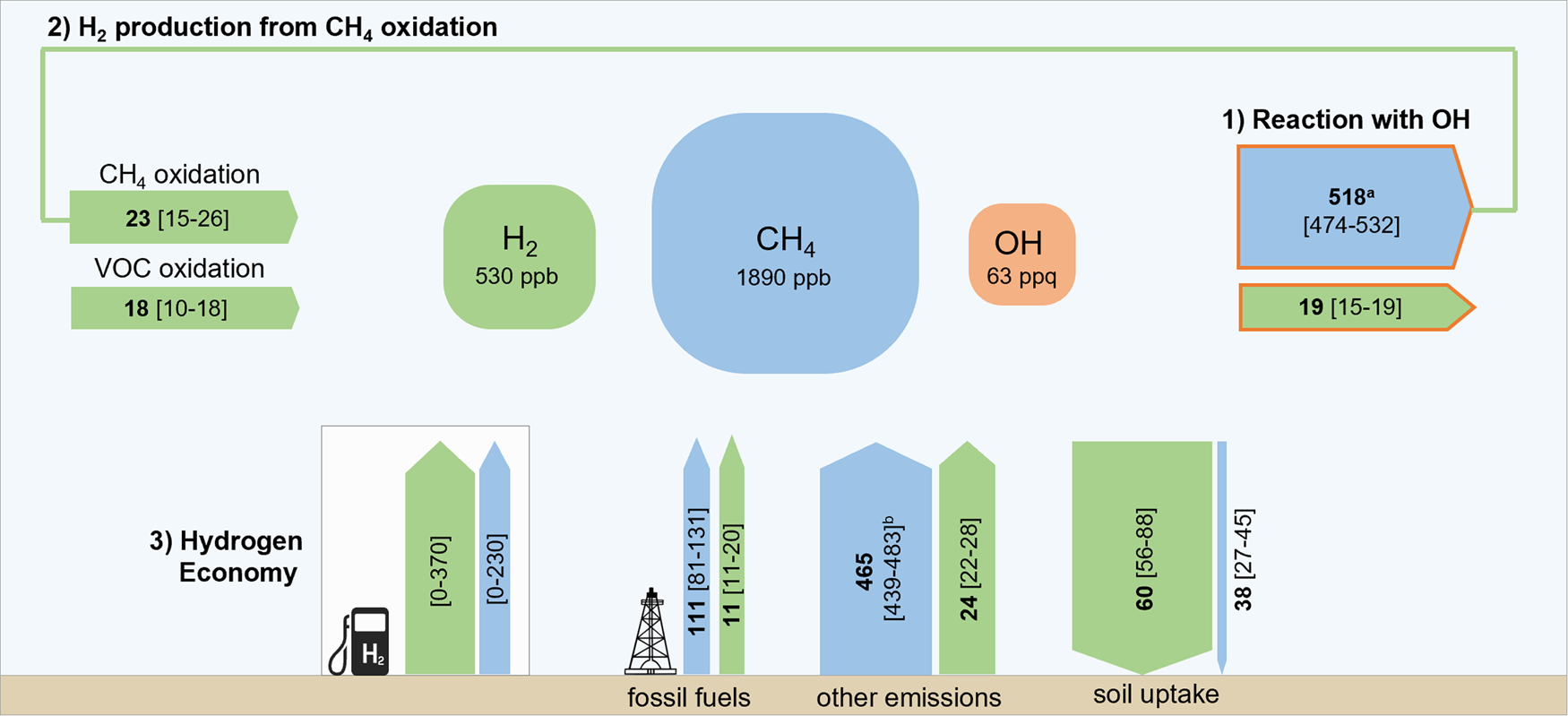2023-03-13 プリンストン大学
この研究により、近い将来の環境破壊を回避するために、水素製造による排出を管理し、最小化することが極めて重要であることが明らかになりました。
研究者らは、水素の排出が大気中のメタンの増加につながる転換点を特定し、それによって水素の排出を管理するための目標を確立しました。本研究では、水素が大気中のメタンに及ぼす影響を考慮する時間スケールに焦点を当て、水素とメタンの漏洩率を管理することの重要性を強調しています。
<関連情報>
- https://phys.org/news/2023-03-hydrogen-fuel-prolong-methane-problem.html
- https://www.nature.com/articles/s41467-022-35419-7
大気中のメタンに対する水素経済のリスク Risk of the hydrogen economy for atmospheric methane
Matteo B. Bertagni,Stephen W. Pacala,Fabien Paulot & Amilcare Porporato
Nature Communications Published:13 December 2022
DOI:https://doi.org/10.1038/s41467-022-35419-7

Abstract
Hydrogen (H2) is expected to play a crucial role in reducing greenhouse gas emissions. However, hydrogen losses to the atmosphere impact atmospheric chemistry, including positive feedback on methane (CH4), the second most important greenhouse gas. Here we investigate through a minimalist model the response of atmospheric methane to fossil fuel displacement by hydrogen. We find that CH4 concentration may increase or decrease depending on the amount of hydrogen lost to the atmosphere and the methane emissions associated with hydrogen production. Green H2 can mitigate atmospheric methane if hydrogen losses throughout the value chain are below 9 ± 3%. Blue H2 can reduce methane emissions only if methane losses are below 1%. We address and discuss the main uncertainties in our results and the implications for the decarbonization of the energy sector.



